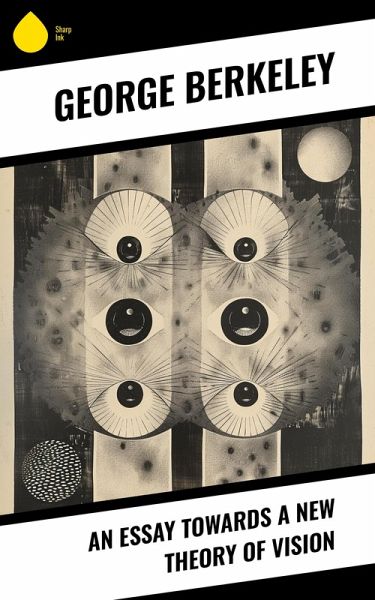
An Essay Towards a New Theory of Vision (eBook, ePUB)

PAYBACK Punkte
0 °P sammeln!
In "An Essay Towards a New Theory of Vision," George Berkeley presents a groundbreaking exploration of the nature of sight and perception, challenging the predominant mechanistic theories of his time. Through a meticulous examination of how we experience visual phenomena, Berkeley argues that vision is not merely a passive reception of light but an interpretative process deeply intertwined with our sensory experiences and cognition. His literary style is characterized by clear, logical reasoning interspersed with philosophical inquiry, situating the work within the context of early modern phil...
In "An Essay Towards a New Theory of Vision," George Berkeley presents a groundbreaking exploration of the nature of sight and perception, challenging the predominant mechanistic theories of his time. Through a meticulous examination of how we experience visual phenomena, Berkeley argues that vision is not merely a passive reception of light but an interpretative process deeply intertwined with our sensory experiences and cognition. His literary style is characterized by clear, logical reasoning interspersed with philosophical inquiry, situating the work within the context of early modern philosophy and empiricism. Drawing on both scientific observations and philosophical insights, Berkeley lays the groundwork for understanding how vision operates not just as a physical function, but as a complex interplay of perception and reality. George Berkeley, a prominent Irish philosopher of the 18th century, is best known for his contributions to idealism and empiricism. Influenced by the debates surrounding perception and reality, Berkeley's work reflects his commitment to examining the implications of sensory experience. His philosophical background in both theology and philosophy enabled him to approach vision from a unique perspective, emphasizing the subjective nature of reality as shaped by our interactions with the world. This seminal work is an essential read for anyone interested in philosophy, optics, or cognitive science. Berkeley's profound insights not only provoke critical thought on how we perceive visual information but also invite readers to reconsider the fundamental nature of reality itself. Exploring this text will enrich your understanding of perception and its philosophical ramifications, making it a valuable addition to the literature on vision and understanding.
Dieser Download kann aus rechtlichen Gründen nur mit Rechnungsadresse in A, B, BG, CY, CZ, D, DK, EW, E, FIN, F, GR, HR, H, IRL, I, LT, L, LR, M, NL, PL, P, R, S, SLO, SK ausgeliefert werden.













